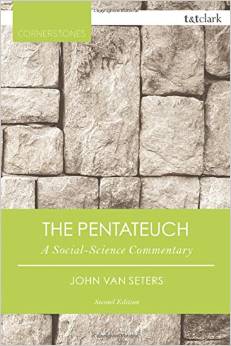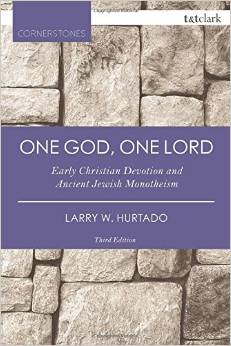Mais um clássico reeditado na coleção Cornerstones (= pedras angulares) da Bloomsbury T & T Clark.
VAN SETERS, J. The Pentateuch: A Social-Science Commentary. 2. ed. London: Bloomsbury T & T Clark, 2015, 224 p. – ISBN 9780567658791.
Diz a editora:
Nesta abordagem do Pentateuco, John Van Seters analisa as várias tentativas histórico-críticas de compreendê-lo que surgem de noções sobre a evolução social da religião e cultura de Israel.
O Pentateuco é um acúmulo de tradições populares, uma obra de historiografia antiga, um documento que legitima a reforma religiosa?
Em diálogo com visões concorrentes, Van Seters defende um modelo composicional que reconhece a diversidade social e histórica dos estratos literários.
Van Seters argumenta que um autor de um proto-pentateuco criou uma história abrangente de Gênesis a Números que foi escrita como um prólogo para a História Deuteronomista (Deuteronômio a 2 Reis) no período exílico, história que foi posteriormente expandida por um escritor sacerdotal para torná-la o documento fundamental da comunidade do templo de Jerusalém.
“In this magisterial overview of the Pentateuch John Van Seters reviews the various historical-critical attempts to read it that arise from notions about the social evolution of Israel’s religion and culture. Is the Pentateuch an accumulation of folk traditions, a work of ancient historiography, a document legitimizing religious reform? In dialogue with competing views, Van Seters advocates a compositional model that recognizes the social and historical diversity of the literary strata. Van Seters argues that a proto-Pentateuchal author created a comprehensive history from Genesis to Numbers that was written as a prologue to the Deuteronomistic History (Deuteronomy to 2 Kings) in the exilic period and later expanded by a Priestly writer to make it the foundational document of the Jerusalem temple community.
This social-science commentary on the Pentateuch is renowned as one of the most influential volumes on this group of texts. For the new edition Van Seters has revised several sections of the text, updating and integrating new bibliographical items, and refining the text where necessary. A reflective preface summarizes these changes and developments for the reader’s convenience”.

